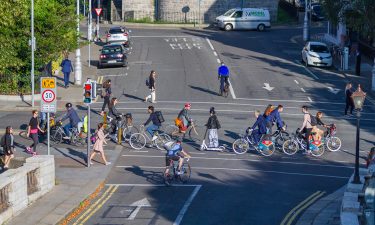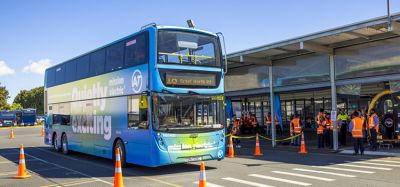UK e-scooter trials to be fast-tracked as part of sustainable transport boost
- Like
- Digg
- Del
- Tumblr
- VKontakte
- Buffer
- Love This
- Odnoklassniki
- Meneame
- Blogger
- Amazon
- Yahoo Mail
- Gmail
- AOL
- Newsvine
- HackerNews
- Evernote
- MySpace
- Mail.ru
- Viadeo
- Line
- Comments
- Yummly
- SMS
- Viber
- Telegram
- Subscribe
- Skype
- Facebook Messenger
- Kakao
- LiveJournal
- Yammer
- Edgar
- Fintel
- Mix
- Instapaper
- Copy Link
Posted: 10 May 2020 | Sam Mehmet (Intelligent Transport)
The government has also announced an initial £250 million emergency active travel fund for cycling and walking infrastructure and revealed plans to extend the UK EV charging network.


UK Transport Secretary, Grant Shapps, recently announced a series of new plans to boost active and sustainable travel across the UK:
E-scooters
E-scooter trials will be brought forward from 2021 to June 2020 to help encourage more people off public transport and onto greener alternatives. Originally set to take place in four Future Transport Zones, the trials of rental e-scooters – which will now be offered to all local areas across the country – aim to allow government to assess the benefits of e-scooters as well as their impact on public space, with the potential to see rental vehicle on UK roads as early as June.
Andy Street, the Mayor of the West Midlands, said: “The West Midlands is proud to be leading the way on future transport development, and I am pleased the government has put its faith in us again with this new and innovative trial of e-scooters.
“This trial will help bring more flexibility, choice, and greener travel solutions for the region, at a time when we are facing a climate emergency and urging people to leave the car at home.
“We will also use the trial to look at the current transport challenges the coronavirus pandemic has presented us with and explore how e-scooters could be used to help tackle them.”
Cycling and walking
Pop-up bike lanes with protected space for cycling, wider pavements, safer junctions, and cycle and bus-only corridors will be created in England as part of a £250 million emergency active travel fund, Shapps announced – the first stage of a £2 billion investment, as part of the £5 billion in new funding announced for cycling and buses in February.


Fast-tracked statutory guidance has been published, which is designed to tell councils to reallocate roadspace for significantly-increased numbers of cyclists and pedestrians. In towns and cities, some streets could become bike and bus-only while others remain available for motorists, the guidance suggested.
Shapps said: “During this crisis, millions of people have discovered cycling – whether for exercise or as a means of safe, socially-distanced transport. When the country does get back to work we need those people to stay on their bikes and be joined by many more.
“Otherwise, with public transport’s capacity severely restricted at this time, our trains and buses could become overcrowded and our roads gridlocked – holding up emergency services, critical workers and vital supplies.
“We know cars will continue to remain vital for many, but as we look to the future, we must build a better country with greener travel habits, cleaner air and healthier communities.”
An updated Cycling and Walking Investment Strategy will be launched by the Prime Minister in the summer, with further measures that aim to transform cycling and walking to deliver the government’s aims to double cycling and increase walking by 2025.
Electric vehicles (EVs)
Shapps also announced that an extra £10 million – double the current funding amount – is being committed to the on-street residential chargepoint scheme, which aims to allow local authorities to install up to 7,200 devices, making it more convenient to charge and own an electric vehicle.


The government is also working alongside the tech sector to see how technology could be used to help commuters stagger their journeys and advise on alternative modes of travel. Leading transport tech experts including Google, Zipabout and Trainline recently met at a roundtable chaired by the Transport Secretary, to explore how technology could help ease overcrowding and reduce the risk of a second spike in coronavirus cases.
Potential solutions could include mobile phone apps warning when public transport is particularly busy or advising on a quieter time to travel, allowing people to flex their hours and prevent the transport network from being overburdened.
Related topics
Alternative Power, COVID-19, Infrastructure & Urban Planning, Public Transport, Sustainable Urban Transport, Transport Governance & Policy
Related modes
Cycling, e-scooters, Electric Transport, Walking
Related cities
UK
Related organisations
Department for Transport (DfT)
Related people
Andy Street, Grant Shapps








